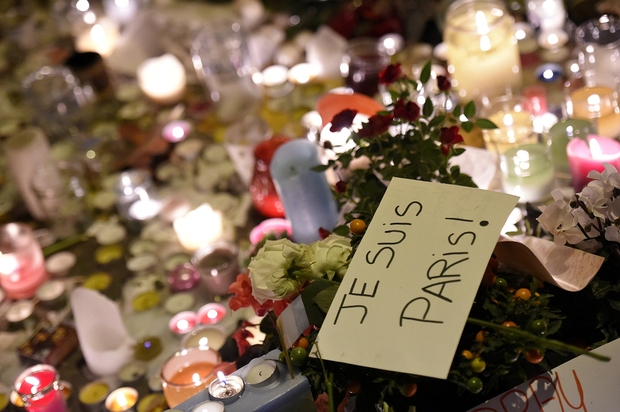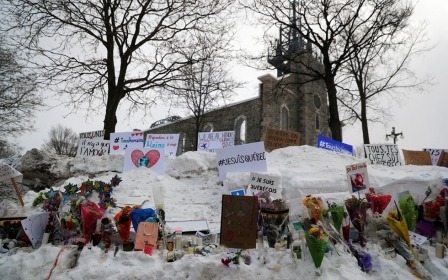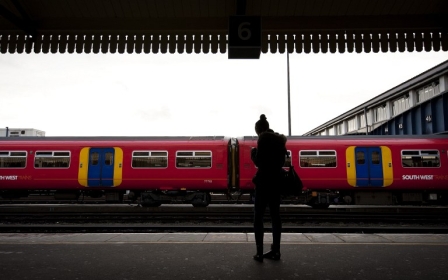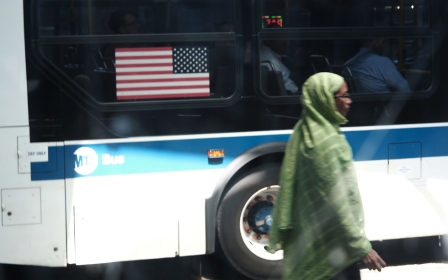Manchester attack: How Muslims became the enemy within
The horrific attack by Salman Abedi in Manchester which left 22 people dead will stay with those involved and the wider community for a very long time.
Sadly, the bombing has also led to accounts of abuse and evidence of wider anti-Muslim sentiment that are likely to shape hate-crime narratives with potentially fatal consequences.
Taliesin Myrddin Namkai-Meche, 23, and Rick Best, 53, were killed at the weekend after intervening during a racist attack on a commuter train in Portland, when two young Muslim women were being racially abused. There is no evidence of any link to Manchester, but it is part of a wider anti-Muslim sentiment in the United States and Europe.
Muslims are now increasingly viewed with suspicion and have become the new folk devils. Since the Manchester bombing, Chief Constable Ian Hopkins of Greater Manchester Police has said that reports of hate crimes in the area have risen from 28 reports on Monday to a spike of 56 reports on Wednesday.
Those numbers might seem low - but for the victims of hate crime the impact is real and something they have to live with 24 hours a day.
Shocking research reveals abuse
I spent four weeks living as a 'visible' Muslim for a study I co-authored with Dr Irene Zempi, a colleague, to examine how our perceived identity as Muslims made us vulnerable to Islamophobia. We defined visible as being easily identifiable because of a Muslim name and/or Muslim appearance, either in the real or the virtual world.
My colleague - who is not a Muslim - wore the full veil including a jilbab (long dress), hijab and niqab for prolonged periods of time in public. I am a Muslim but my religious identity is not visibly identifiable: I do not have a beard nor wear traditional dress. For this study I grew a beard, wore the jubba and an Islamic cap as part of my daily routine.
We both realised that it is not possible for 'outsiders' to fully grasp the experience of being 'visibly' Muslim and vulnerable to Islamophobia on a daily basis
During the study we were both subjected to verbal abuse, harassment and potential physical attacks. The level of hatred and vitriol we experienced was startling.
Irene was subjected to swearing such as "Muslim whore", "fu**ing bitch", "fu**ing freak", "Muslim scum" and "your religion is filth". Furthermore, she had to face physical attacks, although they were much less common than verbal forms of abuse, with the exception of passengers from a passing car who threw eggs at her.
I, meanwhile, was called a “typical Paki”, “scumbag” and “terrorist scum”. I was also threatened in a number of public places and told that “I did not belong here”.
Our experiences were similar to the Islamophobic victimisation experienced by those men and women whose appearance is visibly Muslim.
We both realised that it is not possible for 'outsiders' - non-Muslims and Muslims like myself who may not be 'visibly' Muslim - to fully grasp the experience of being 'visibly' Muslim and vulnerable to Islamophobia on a daily basis.
During our experiences, bystanders who saw us being harassed did not intervene. This extract is taken from a diary which I kept:
“My first trip was to the city centre in Birmingham, something I often do without any problems as a non-identifiable Muslim man. Before leaving, I sprinkled some Islamic attar [perfume] on my jubba, wore my Islamic cap and caught the bus to the city centre.
"I sat down and began reading my newspaper. After a while, a group of teenage girls sat behind me and began laughing hysterically. One of them shouted: ‘Look, we have a YOU KNOW WHAT on the bus’ and then one of the other girls shouted: ‘Yes! We have a filthy terrorist on the bus.’ I confronted them by asking them ‘why did you say that?’ They said: ‘Yes, so what if we said that? What are you gonna do about it?’ I remained silent. The bus was full with people but no one came to my defence. I wanted someone to stand up for me. I wanted someone to say that I am not a terrorist just because I have a beard. I sat back on my seat and kept counting each stop. When my stop arrived, I was just so relieved I could get off the bus.
"When I got home that evening I couldn’t stop thinking: ‘Why me? I have not done anything wrong.'”
Victims of hate crimes do not necessarily want physical action from witnesses – just a phone call to tell the police what they have witnessed.
Muslims suffer psychological responses
Research has shown that the prevalence and severity of anti-Muslim hate crimes is influenced by trigger events of local, national and international significance.
Terrorist attacks carried out by individuals who identify themselves as Muslim or acting in the name of Islam – such as the Manchester attack, the atrocities committed by IS and attacks around the world such as in Sydney, Paris, Copenhagen and Tunisia – can spark a significant increase in anti-Muslim hate crimes.
They are also likely to suffer psychological and emotional responses, from lowered self-confidence to depression and anxiety and feelings of insecurity and isolation.
Muslims are targeted because of the 'visibility' of their identity: they cannot take comfort in the belief that such attacks are random and could have happened to anyone.
Muslims are targeted because of the 'visibility' of their identity: they cannot take comfort in the belief that such attacks are random
Instead they are forced to view this abuse as an attack on their Muslim identity, with severe implications for their levels of confidence and self-esteem as well as their feelings of belonging and safety in the UK.
The events in Manchester mean that anyone who has the 'visible' markers of Islam is now more likely to be a victim of hate crimes.
The aftershocks of the attack are likely to lead to further reports of anti-Muslim hate crimes, which can be attributed to anti-Muslim attitudes as well as to racist sentiments.
As the police hunt for the terror cell involved in the Manchester attack, they will also have to protect the very community from which Salman Abedi came.
- Imran Awan is an associate professor in criminology and an expert on issues related to Islamophobia, cyber hate, policing, security and counter-terrorism. He is the author of a number of papers and books in this area and is editor of Islamophobia in Cyberspace: Hate Crimes Go Viral (2016).
The views expressed in this article belong to the author and do not necessarily reflect the editorial policy of Middle East Eye.
Photo: Muslim men pray for victims of the attack at Manchester Arena at a mosque in Manchester, 23 May 2017
Middle East Eye propose une couverture et une analyse indépendantes et incomparables du Moyen-Orient, de l’Afrique du Nord et d’autres régions du monde. Pour en savoir plus sur la reprise de ce contenu et les frais qui s’appliquent, veuillez remplir ce formulaire [en anglais]. Pour en savoir plus sur MEE, cliquez ici [en anglais].






